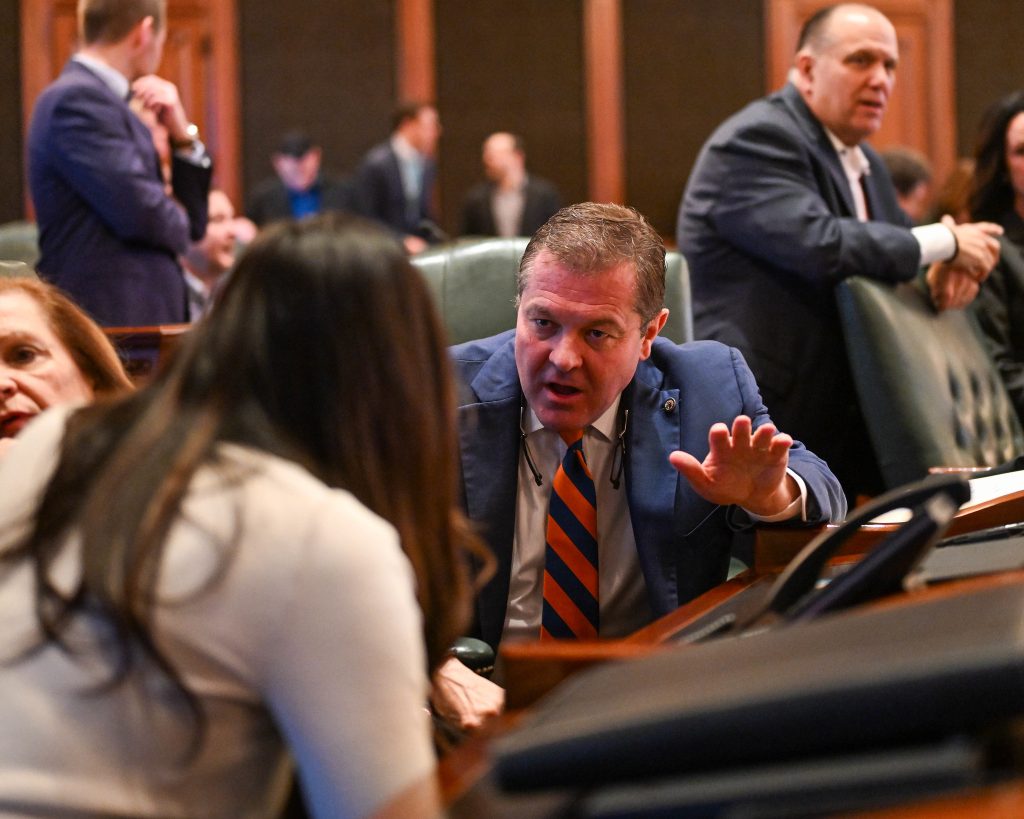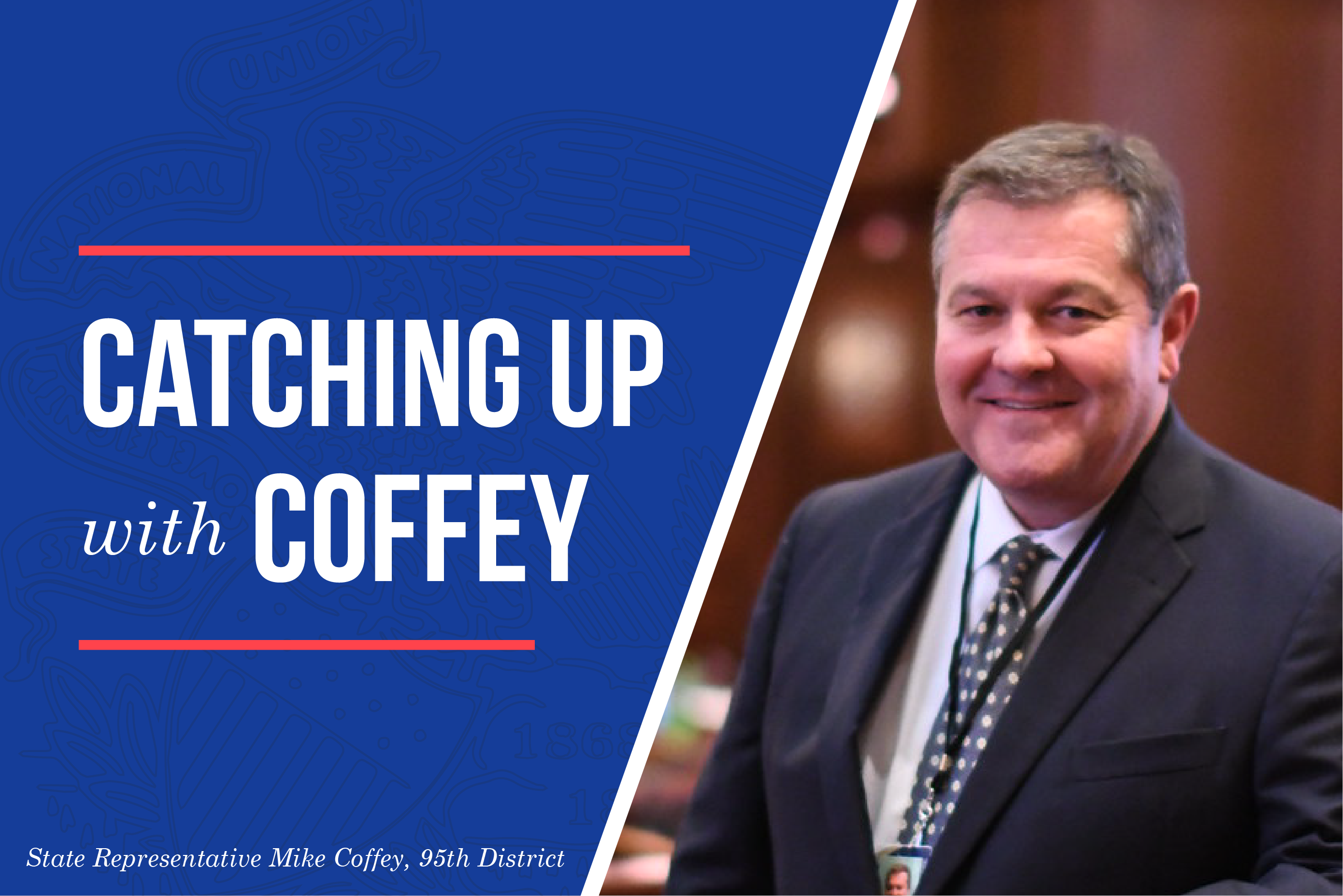BUDGET | TAXES | IMMIGRATION | INFLATION
BUDGET
Governor delivers largest budget proposal in state history and wants to raise taxes. House Republicans respond. Governor JB Pritzker delivered his State of the State and Fiscal Year 2025 Budget Address to a joint session of the Illinois General Assembly this week.
Governor Pritzker introduced the largest budget proposal in state history. The Governor’s FY25 proposed budget would spend $52.7 billion, which is a $2.3 billion increase over the FY24 enacted budget – a 4.5% increase.
The Governor’s budget plan includes over $1 billion in additional revenue, raising taxes on Illinois families and businesses while providing minimal tax relief. Instead of proposing any substantive cuts to address the projected $775 million deficit, the Governor is asking taxpayers to again foot the bill so that he can cater to his core constituencies.
House Minority Leader Tony McCombie and Representative Mike Coffey offered their insight into the state budget proposal Governor Pritzker revealed. Here is what House Minority Leader Tony McCombie had to say:
“It is hard to ignore the majority of the budget proposal that includes no structural reforms or tax relief, but instead tax increases that will make it harder on Illinois families and businesses,” said Leader McCombie.
Rep. Coffey said this:

“Illinois’ business model is to use taxpayer money like an ATM and it’s driving people out of the state,” said Rep. Coffey. “Lowering taxes on hard-working residents raises disposable income and allows consumers to spend more, which is great for economic growth.”
TAXES
$1 billion in tax increases are major sticking points in the Governor’s proposed budget. Gov. Pritzker’s FY25 budget proposal called for close to $1 billion in new taxes on residents and businesses in the state, including continuing the inflation-ignoring cap that has “decoupled” the income tax standard deduction, utilized by almost all Illinois taxpayers, from inflation as measured by the Consumer Prince Index. If enacted into law this decoupling will, in FY25, take an estimated $93 million from the pockets of hardworking Illinois families.
The Governor also proposed changes to the how much net operating losses businesses will be able to deduct on their taxes in tax year 2025. This change is expected to increase the tax liability of Illinois businesses by $526 million in FY25. The proposed Pritzker budget also includes a $200 million tax increase to be imposed on earnings from sports wagering. This would be imposed by raising the tax rate on sports wagering from 15% to 35%. The Governor’s proposed tax increases, if enacted, will be imposed on top of continuing increases in local property tax bills. Illinois is already ranked 9th overall as one of the 10-worst states in the nation with regards to overall tax burdens.
IMMIGRATION
Comptroller launches portal to track migrant-related spending. An estimated 40,000 migrants have arrived in greater Chicago in recent months. The State of Illinois has already spent $638 million in taxpayer funds on the migrant crisis. Spending on the migrant crisis includes health care, housing, and social services.
Illinois Comptroller Susana Mendoza has launched a new portal to track State migrant-related spending. With Governor Pritzker announcing an additional $182 million in State spending to help address Chicago’s migrant crisis, many Illinoisans are interested to see where the money is going. The Comptroller’s portal can be found here.
INFLATION
Illinois once again faces rising gas prices. The average price of gasohol, the highest-volume motor fuel in Illinois, has jumped 26.4 cents per gallon over the past month. Market watchers pointed towards the annual transition from ‘wintertime blends’ to the more expensive motor fuel mixtures that are required to be sold in Illinois’ two largest consolidated metro areas, Chicago and St. Louis, during the warmer months.
The specialty summer fuels are described as effective in reducing the buildup of ozone, an air pollutant, in northern and southwestern Illinois. Both metro areas, Chicago and St. Louis, are in long-term noncompliance with federal environmental guidelines for ozone. Motor fuel is a necessity for the budgets of most Illinois families, and rising prices for this essential commodity are likely to force cutbacks in almost every other household spending category.
Illinois and its local governments also lay significant tax supplements on the cost of motor fuel. The ‘gas tax’ and associated sales taxes and levies pay for highway and bridge construction and maintenance, for the operations of mass transit systems, and for the operating costs of State and local government.
(Video) Rep. Coffey Recognizes Rochester High School Football Team
https://repcoffey.com/2024/02/26/video-rep-coffey-recognizes-rochester-high-school-football-team/
